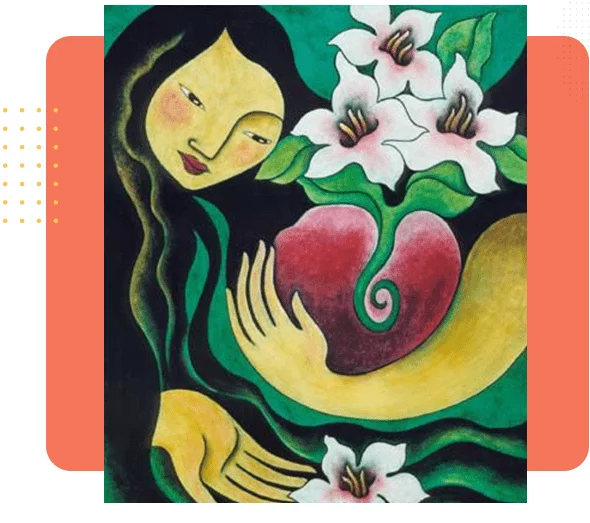Every year, Muslims celebrate Eid al-Adha (“Feast of the Sacrifice”). It is one of the holiest days in the calendar, commemorating the story—shared across all 3 Abrahamic religions—of Ibrahim (Abraham) being commanded by Allah (God) to sacrifice his son Ismail (Isaac) as a test of faith. Once it was clear that Ibrahim was prepared to carry out this act of sacrifice, Allah spared his son and had Ibrahim sacrifice a lamb instead. For that reason, Eid al-Adha sometimes involves the ritual slaughter of animals, or some other symbolic means of sacrifice, and a resulting feast of meats and delicacies.
Religious sacrifice usually involves rituals directed at a God or some higher power. There are many variations among religions and much has changed from the time sacrifice involved blood and gore. Jews no longer practice ritualistic animal sacrifice, but instead perform symbolic acts of sacrifice, like charitable offerings (tzedakah). In Christianity, too, baptism is viewed as a symbolic act of sacrifice; the taking of communion corresponds to the sacrifice made by Jesus Christ so that humanity might be saved. Symbolically, we are supposed to sacrifice ourselves with the same intention: We sacrifice our selfish desires in pursuit of selfless action that benefits others. Most sects of Hinduism perform sacrifice with non-living food offerings.
Religious sacrifice is not just about yielding a specific goal or benefit; rather, it is the process itself that is important, as it fosters community, invites self-reflection, and reminds us to be more generous and humbler in our lives. Every culture has its own sacrifice rituals and what seems horrific to one may be quite ordinary, important, and even therapeutic to others.
In addition to religious, ritual-based sacrifice, sacrifice can also be an expression of willpower and psychological strength. Non -ritual sacrifice is intent translated into practice. It is usually purposeful, attached to some request. But it is also about learning restraint and looking beyond the self and beyond the present
Society itself is based on the premise of sacrifice: we sacrifice some of our individual freedoms and innate desires to be able to live as part of a safer and stronger collective based on shared rules of morality and divisions of labor. Furthermore, soldiers choose to even sacrifice their lives for the sake of defending their nations.

There was a famous study conducted in 1972, known now as the Stanford marshmallow experiment. In it, children were presented with the option of receiving one marshmallow immediately, or two marshmallows if they waited a short period of time. Researchers then tracked the lives of these children as they got older and found that those who chose the two marshmallows seemed to have more success in life with things like better academic achievements, better physical health, etc. Thus, the study suggested that the ability to sacrifice instant gratification for better long-term rewards was an advantageous skill that pays off in many areas of life.
Christianity
“For God so loved the world that he gave his only Son, so that everyone who believes in him may not perish but may have eternal life.”
—The New Testament (John 3:16), Christian text
“And do not forget to do good and to share with others, for with such sacrifices God is pleased.”
—The New Testament (Hebrews 13:16), Christian text
Islam
“So, you who believe, do not violate the sanctity of God’s rites, the Sacred Month, the offerings, their garlands, nor those going to the Sacred House to seek the bounty and pleasure of their Lord.”
—Qur’an (5:2), Muslim text
Judaism
“Commemorate the way the Lord brought his people out of Egypt. Consecrate to me every firstborn male. The first offspring of every womb among the Israelites belongs to me, whether human or animal.”
—Hebrew Bible (Exodus 13:2), Jewish text
“The angel of the Lord called to Abraham from heaven a second time and said, ‘I swear by myself, declares the Lord, that because you have done this and have not withheld your son, your only son, I will surely bless you and make your descendants as numerous as the stars in the sky and as the sand on the seashore.’”
—Hebrew Bible (Genesis 22:15-18), Jewish text
Baha’i
“One may sacrifice his comfort and material means in order to help the poor and the needy. In so doing, one is rewarded spiritually, but has to give up something of material value instead. This sacrifice, if carried out in the path of God and for His sake, is most meritorious. It enables the soul to become detached from the material world, and thus brings it closer to God. This is one of the fruits of sacrifice.”
—Adib Taherzadeh, member of Baha’i Universal House of Justice
Buddhism
“Some people get the impression that Buddhism talks too much about suffering. In order to become prosperous, a person must initially work very hard, so he or she has to sacrifice a lot of leisure time. Similarly, the Buddhist is willing to sacrifice immediate comfort so that he or she can achieve lasting happiness.”
–The Dalai Lama
“In order to develop the willpower it takes to sacrifice, you must first realize that spending all your time and energy pursuing material comforts means you will eventually suffer. It’s all about positive and negative consequences. It’s very important to be aware that there are long-term consequences [for every action].”
–The Dalai Lama
Hinduism
“The process of offering is Brahman; that which is offered is Brahman. Brahman offers the sacrifice in the fire of Brahman. Brahman is attained by those who see Brahman in every action.”
—The Bhagavad Gita (4:24), Hindu text
“Whatever I am offered in devotion with a pure heart—a leaf, a flower, fruit, or water—I accept with joy. Whatever you do, make it an offering to me—the food you eat, the sacrifices you make, the help you give, even your suffering. In this way you will be freed from the bondage of karma, and from its results both pleasant and painful. Then, firm in renunciation and yoga, with your heart free, you will come to me.”
—The Bhagavad Gita (9:26-28), Hindu text
Daoism
“In a land far to the south and east is a country where it is customary for people to kill their firstborn and offer its flesh and blood to everyone in the community to eat. They say this will bring fertility to the women […] All these customs are established traditions in the countries where they are practiced. They are observed by all the people and there is nothing strange about them. We call them barbaric and are shocked by them only because we have different customs.”
—Lieh-tzu, Daoist text

Confucianism
“People believed that spirits and ancestors could affect human destinies; therefore, sacrifices could bring good fortune or avert disaster. Offering sacrifices was a major responsibility; indeed, it was one of the fundamental duties of the Shang kings. Sacrifices were made to nature spirits, culture heroes, and royal ancestors. The number of sacrifices grew so that by the eleventh century B.C., the king had to perform a major ceremonial sacrifice every day to mark annual sacrifices to royal deities.”
—Ruth H. Chang, scholar of East Asian religions
Modern Philosophy and Theology
“As I said, sacrifice is often offered in exchange for better crops or plentiful game. However, people also have the intuition that the outcomes of their agricultural or hunting operations mainly result from their own action. Indeed, whatever the ritual guarantee, farmers and hunters never dispense with any empirical measures that increase their likelihood of success. You may give a goat to the gods but you still plow your fields to the best of your abilities.”
—Pascal Boyer, cognitive anthropologist and evolutionary psychologist


